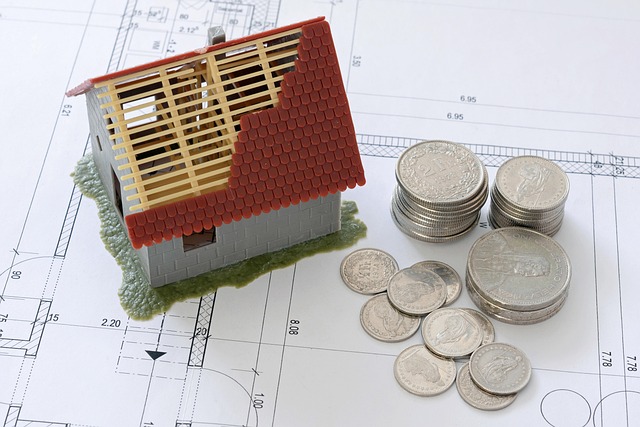Home Valuation Methods and Market Factors Guide
Understanding your property's current market value has become increasingly important for homeowners considering refinancing, selling, or simply tracking their investment. With various online tools and professional services available, determining accurate home valuations requires knowledge of different methods, key market factors, and available resources. Modern technology has transformed how property values are calculated, making it easier than ever for homeowners to access preliminary estimates while understanding the factors that influence their property's worth.

Unlock Your Property’s Worth: Online Valuation Tools Explained
Online property valuation platforms use automated valuation models (AVMs) that analyze vast amounts of data to provide instant estimates. These digital tools examine recent comparable sales, property characteristics, location data, and market trends to generate preliminary valuations. Popular platforms include Zillow’s Zestimate, Redfin’s Estimate, and Realtor.com’s RealEstimate, each utilizing different algorithms and data sources.
While these tools offer convenience and immediate results, they serve as starting points rather than definitive appraisals. The accuracy varies significantly based on data availability, property uniqueness, and local market conditions. Most online estimators work most effectively in areas with frequent sales activity and standardized housing types, while unique properties or locations with limited sales data may yield less reliable results.
Understanding Key Factors: What Drives Home Value Today
Multiple interconnected factors influence property values in today’s market. Location remains the primary driver, encompassing neighborhood desirability, school district quality, proximity to employment centers, and local amenities. Physical characteristics such as square footage, lot size, age, condition, and architectural style significantly impact valuations.
Market conditions play a crucial role, including inventory levels, interest rates, and economic factors affecting buyer demand. Recent improvements and upgrades can add value, particularly kitchen and bathroom renovations, energy-efficient features, and structural improvements. External factors like planned developments, zoning changes, or infrastructure projects in the area also influence long-term property values.
Accurate Home Valuation: Steps to Pinpoint Your Property’s Worth
Achieving precise property valuation requires a systematic approach combining multiple methods. Start by researching recent comparable sales in your neighborhood, focusing on properties with similar characteristics sold within the past three to six months. Analyze price per square foot, lot size comparisons, and adjust for differences in features and condition.
Consider obtaining a Comparative Market Analysis (CMA) from local real estate professionals who understand area-specific factors. For the most accurate assessment, professional appraisals conducted by licensed appraisers provide comprehensive evaluations following standardized methodologies. These appraisals consider all relevant factors and provide detailed reports suitable for lending purposes.
Comparing Popular Home Valuation Services and Their Features
| Service Provider | Valuation Method | Key Features | Accuracy Level |
|---|---|---|---|
| Zillow Zestimate | AVM Algorithm | Instant estimates, property history, market trends | Nationwide median error rate ~2% |
| Redfin Estimate | Machine Learning | Real-time MLS data integration, agent insights | Claims higher accuracy in active markets |
| Realtor.com RealEstimate | Statistical Modeling | MLS data, neighborhood analysis, price trends | Varies by market density |
| Professional Appraisal | On-site Inspection | Comprehensive property evaluation, lending-approved | Highest accuracy standard |
| Real Estate CMA | Market Analysis | Local expertise, recent comparables, area knowledge | High accuracy for pricing strategy |
Prices, rates, or cost estimates mentioned in this article are based on the latest available information but may change over time. Independent research is advised before making financial decisions.
Why Your Home’s Value Matters for Refinancing & Selling
Accurate home valuation directly impacts major financial decisions and opportunities. For refinancing purposes, lenders require current property values to determine loan-to-value ratios, affecting interest rates and loan terms. Higher property values may eliminate private mortgage insurance requirements and unlock better refinancing options.
When selling, proper valuation ensures competitive pricing strategies that attract buyers while maximizing returns. Overpricing based on inflated estimates can result in extended market time and eventual price reductions, while underpricing leaves money on the table. Understanding your property’s value also helps with insurance coverage decisions, tax assessments, and estate planning considerations.
Property values serve as benchmarks for equity calculations, enabling homeowners to make informed decisions about home equity loans, lines of credit, or investment strategies. Regular monitoring of property values helps homeowners understand their net worth changes and make strategic decisions about improvements or market timing.
Determining accurate home values requires combining multiple resources and understanding various influencing factors. While online tools provide convenient starting points, professional evaluations offer greater precision for important financial decisions. Market conditions, property characteristics, and location factors all contribute to valuation accuracy, making comprehensive analysis essential for homeowners seeking reliable property worth assessments.



